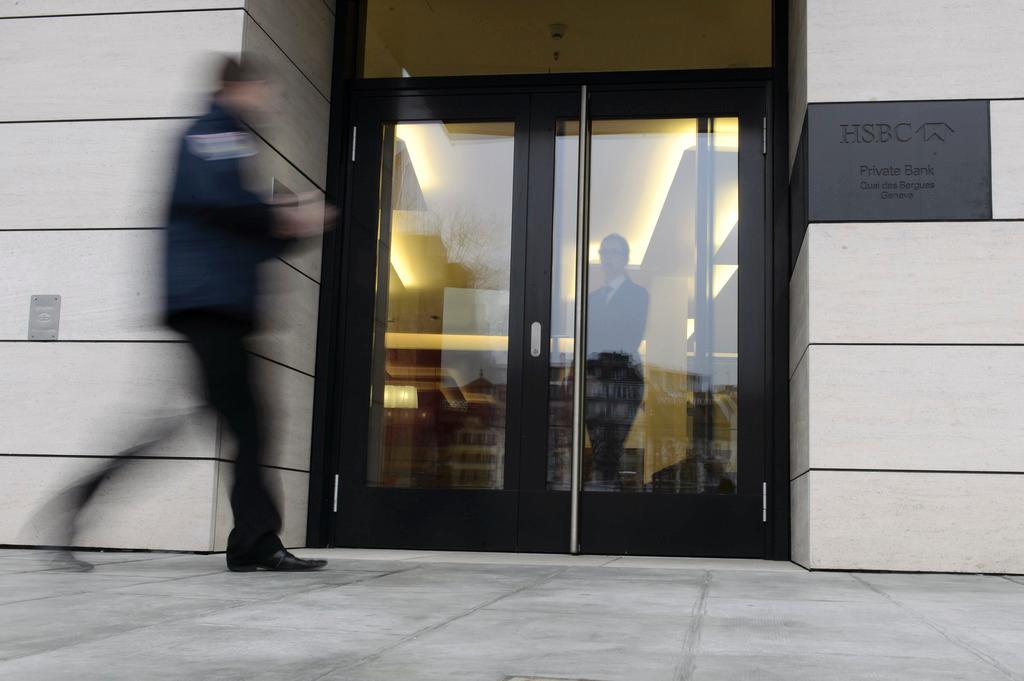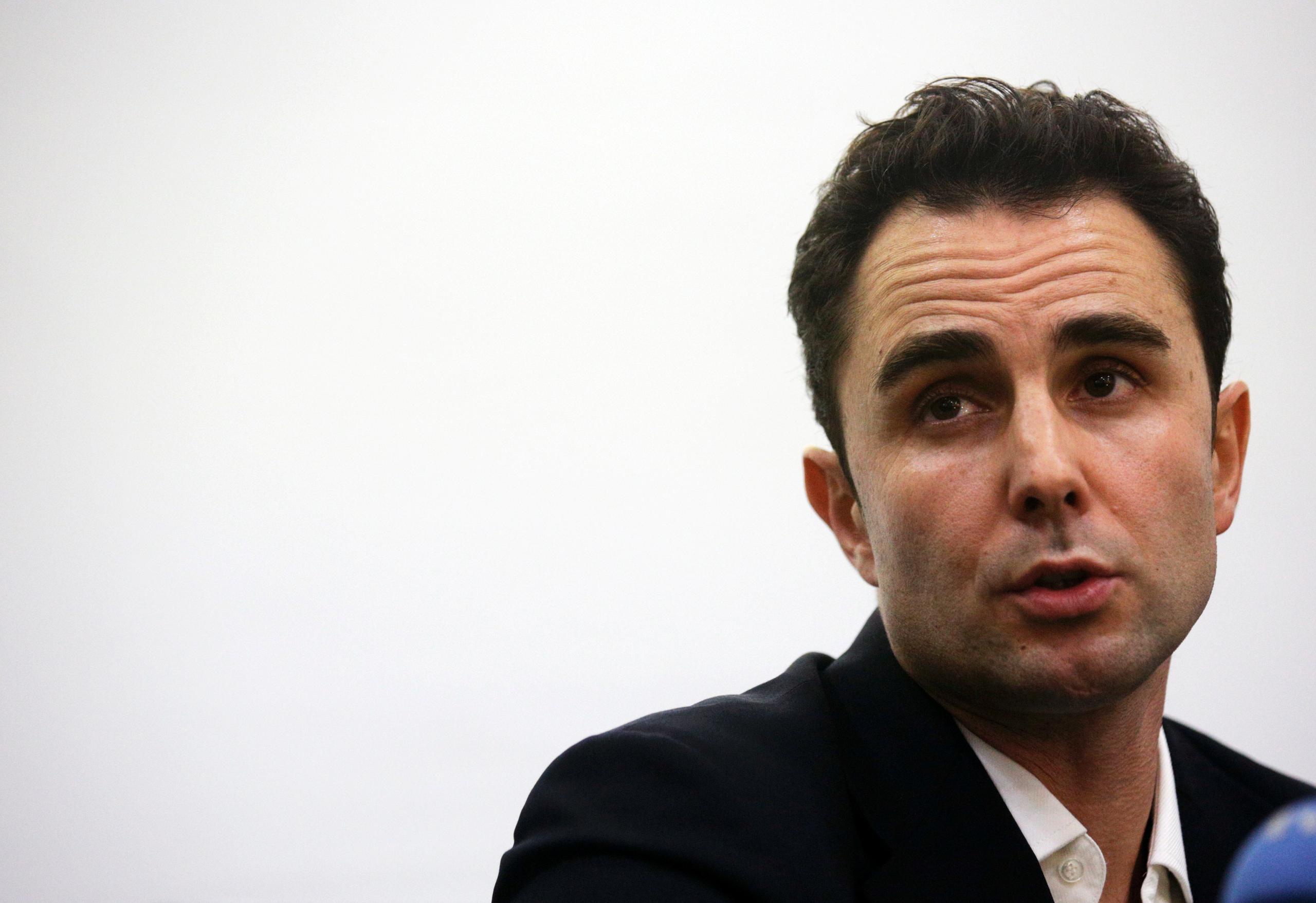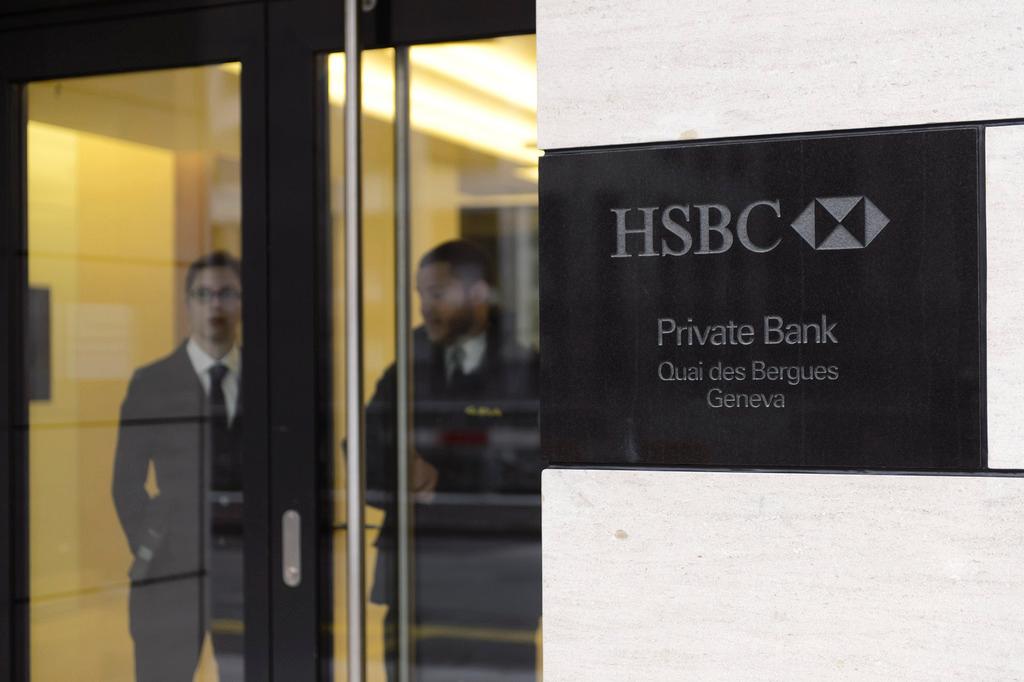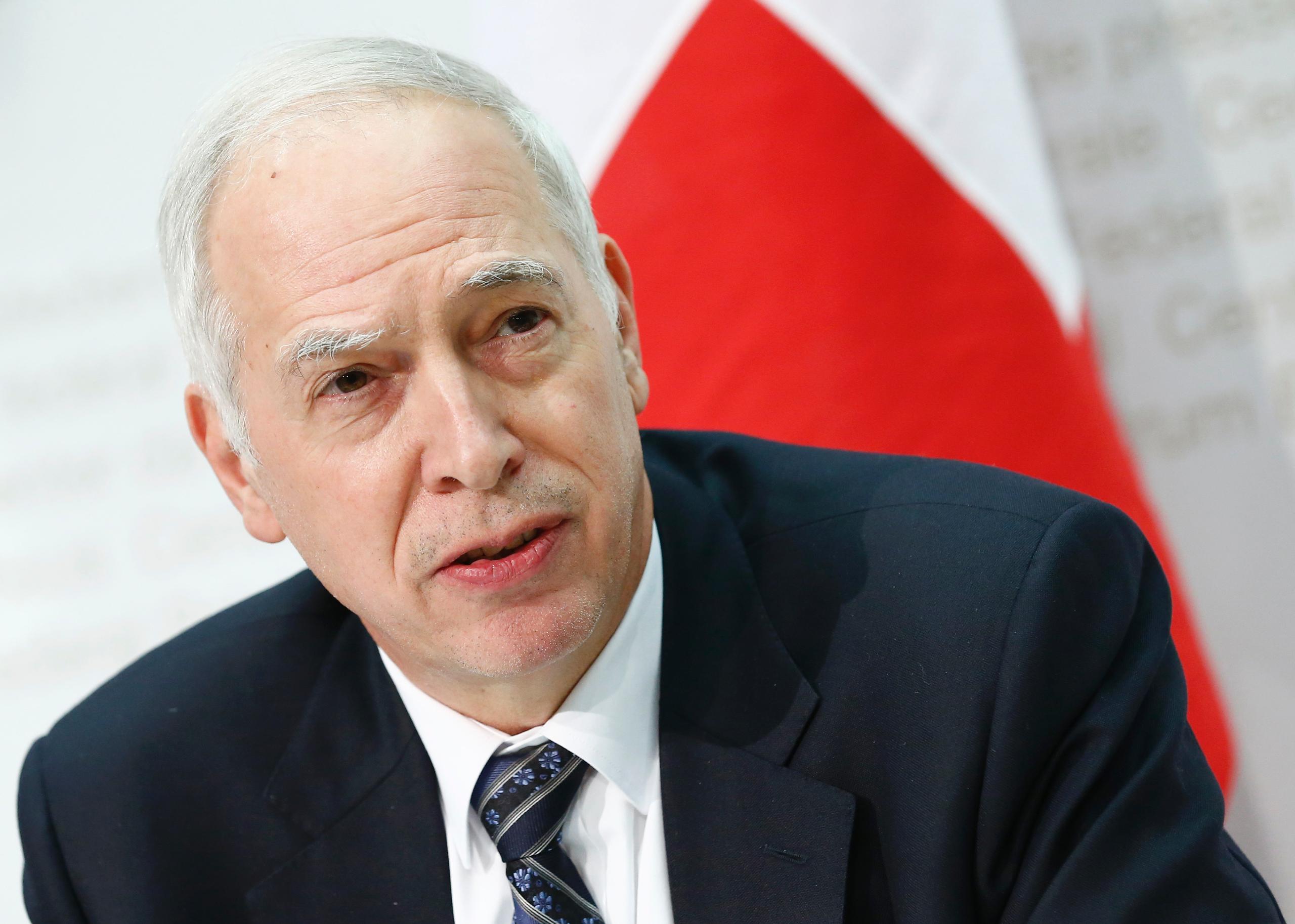HSBC ‘not representative’ of Swiss banking

Helping tax cheats or money launderers has never been an integral strategy of the Swiss financial centre, Swiss Bankers Association (SBA) chief executive Claude-Alain Margelisch tells swissinfo.ch as the HSBC ‘Swiss Leaks’ scandal continues.
The unsavoury activities of HSBC, UBS and others, brought into the public domain by the International Consortium of Investigative Journalists, were the exception rather than the rule, the Swiss banking lobby group insists.
After a series of reforms which are still ongoing, the Swiss financial sector has already evolved beyond recognition from the days of tax evasion scandals, Margelisch says.
swissinfo.ch: Have recent international headlines about alleged tax evasion and money laundering painted a fair picture of banking in Switzerland?
Claude-Alain Margelisch: HSBC is just one of over 280 banks in Switzerland. The alleged problems are absolutely not representative of the Swiss banking community. These were old cases dating back between 2002 and 2007.
Before 2009 Switzerland did not cooperate internationally in the context of tax evasion because at that time we had a regulation to limit cooperation to cases of tax fraud, not tax evasion. The situation has completely changed now. Since 2009, Switzerland has cooperated for all tax offences internationally. And in April 2013 Switzerland accepted the automatic exchange of tax information (AIE).
However, we need to make a very clear distinction between tax evasion and money laundering cases. In 1977 Switzerland was one of the first countries to introduce very strong due diligence and ‘know your customer’ rules to prevent money laundering. [The financial regulator] FINMA has stated that, for the time being, it does not consider that HSBC broke Swiss money laundering laws.
We will have to see if the Geneva justice authorities [that raided HSBC’s Geneva premises on February 18] find a failure by the bank.
swissinfo.ch: HSBC is not the only Swiss bank accused of tax evasion. UBS and Credit Suisse in the US and now Coutts in Germany are just some other examples.
C-A.M.: You also have other foreign banks in the US under investigation – this is not unique to Swiss banks. Germany is looking at the past. Looking at the past, when there was a different legal framework, you get the impression that many Swiss banks could have been involved. But I can clearly say it was the minority of Swiss banks.
We are looking into the past for our assessment and comprehension of conditions today. But one cannot judge the past with today’s legal framework. Some people think that the Swiss banking model was only about pushing tax evasion. In some cases this might have been true. But we focus on the future which will be completely different.
swissinfo.ch: So if a burglar gets caught and says: ‘I am sorry, I am a reformed character, I will not do it again’, then we should not condemn what he did in the past?
C-A.M: . We are not saying that just because these problems took place in the past they are not important. If there were some problems in the past, when some banks did not comply with the high level of regulations, then they have to take responsibility.
The problems of the past are well on their way to being resolved. Switzerland has found solutions with Britain and Austria [withholding tax deals]. Every British and Austrian taxpayer is now tax compliant, and the automatic exchange of information will bring full transparency.
In Germany you have a voluntary disclosure procedure that Swiss banks have encouraged their clients to join. France has also started a voluntary disclosure programme and Switzerland has recently signed an agreement with Italy to resolve the problems of the past.
In the European Union we have had voluntary disclosure programmes with Portugal, Belgium, Spain and the Netherlands.
swissinfo.ch: Switzerland is only introducing new laws under pressure after it tried to resist. How can we be certain that Swiss banks will properly comply with these new regulations?
C-A.M.: After the 2008 financial crisis we came under pressure, along with other jurisdictions such as Luxembourg, Liechtenstein, Austria, Hong Kong and Singapore, to accept international standards of tax cooperation.

More
A Swiss model for the City?
The SBA decided that it was no longer possible to go along with our interpretation of punishable tax wrongdoings because the world had changed direction towards tax conformity and AIE. This has been our clear strategy since 2009.
There is sometimes the impression, that because we were forced to accept change, we would not be very proactive, that we would be very reluctant and delay implementation of new systems for profit. That was never the idea. Swiss banks will fully implement the new standards.
The changed mentality of the Swiss financial centre has been accepted and noticed throughout the world. There is no doubt that Switzerland will continue on this path.
swissinfo.ch: How much damage has the tax evasion publicity caused Switzerland as a wealth manager centre?
C-A.M.: Reports on any wrongdoing are never good for the image of the Swiss financial sector. A good reputation and trust are the two main conditions to be successful in the world of banking.
But we still have good conditions in Switzerland for wealth management. We have a long tradition in private banking and our banks have a global reach. There is political certainty, thanks to our direct democracy system, that rules will not change from one day to the next. And clients know they have the security of a robust legal system.
swissinfo.ch: Do you feel that Switzerland is being unfairly singled out?
C-A.M.: The HSBC case brings the focus back on Switzerland, but this bank is a true global player and not just a Swiss bank. We are about to solve the problems of the past and work on solutions for the future. By accepting AIE Switzerland has shown that it is moving in a new direction. It is important that there is a level playing field and that every financial centre will implement the same information exchange standards.
swissinfo.ch: Should whistleblowers, like Bradley Birkenfeld or Hervé Falciani, be praised for bringing global attention to tax evasion, despite breaking Swiss secrecy laws?
C-A.M.: Every case is unique, but we have rules for these kind of things. Falciani, by the way, was not a whistleblower, but a data thief. In future, with transparency on tax matters and AIE, I can see no reason why someone would continue to steal data.
More scandals to come
In a recent interview with swissinfo.ch, Hans-Ulrich Jost – historian and professor emeritus at the University of Lausanne – said that the airing of HSBC’s dirty laundry would hardly be the last scandal for Switzerland’s banking industry. According to Jost, banks have been using the same techniques to optimise their market chances since WWII – and the Swiss authorities had never done much to stop them. “The Swiss Bankers Association has always been successful at putting enough pressure on the political system to avoid rigid controlling,” Jost told swissinfo.ch.
Asked whether tactics to uphold Swiss banking secrecy were a thing of the past, Jost predicted more Swiss Leaks to come. “Fundamentally, Swiss banks haven’t changed. UBS, the largest, is the model for retaining questionable strategies – despite all the international constraints and all the promises they made,” Jost said. The historian pointed out that money was flowing into Switzerland from places not affected by the sharing of bank data with the US and other OECD countries. “In Africa, Asia and the former Soviet Union countries, there are very profitable markets where it’s not necessary to verify the lawful origin of the funds,” he said, noting that international finance has become more complex yet no more transparent.
Jost said that the wealthy would continue to find ways to hide their money. For example, despite being earmarked for automatic data exchange as part of the new OECD programme, “trust funds, in reality, cannot be controlled in the international finance system”. “Small-time savers are forced to make sure their accounting conforms to the regulations, but those with larger assets, who are already well-positioned in the international market, will always find a way to avoid taxes,” concluded Jost.

In compliance with the JTI standards
More: SWI swissinfo.ch certified by the Journalism Trust Initiative




You can find an overview of ongoing debates with our journalists here. Please join us!
If you want to start a conversation about a topic raised in this article or want to report factual errors, email us at english@swissinfo.ch.